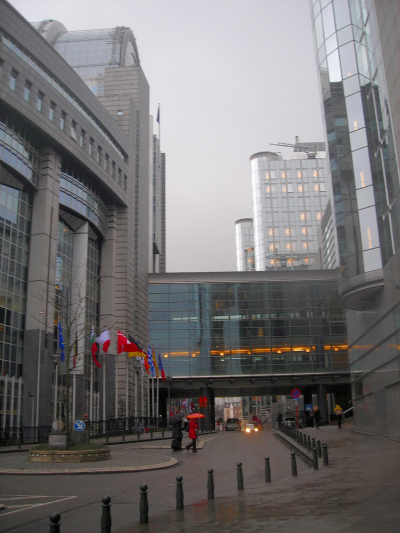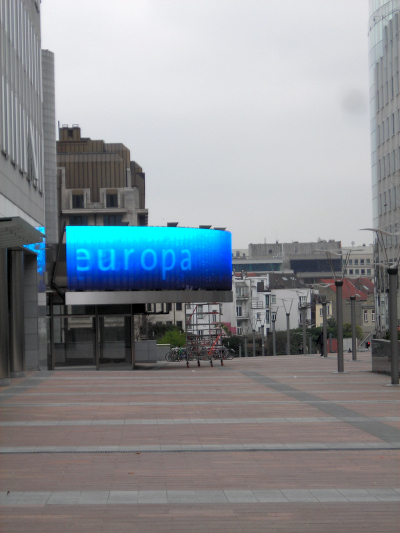Die Inhalte dieser Seite sind leider nicht auf Deutsch verfügbar.
Seitenpfad:
- Graduate School GLOMAR
- PhD student reports
- Research Placements
- Timo Dziemballa
Timo Dziemballa
Report of GLOMAR PhD student Timo Dziemballa about his internship at the Institute for European Environmental Policy (IEEP), Brussels, Belgium, from 1 January - 31 March 2011
The Institute for European Environmental Policy (IEEP) is an independent not for profit research organisation. It undertakes research and consultancy on environmental and related policies in Europe. Clients and working partners of IEEP include, among others, EU institutions, national governments, think tanks, NGOs and academics. The institute has offices in London and Brussels.
As in the first half of my internship with the Fisheries Team at the Brussels office from October to December 2010 the majority of my work at IEEP from January to March 2011 revolved around the ongoing reform of the Common Fisheries Policy (CFP). First, this included attending reform-related events organised by the European Commission, the European Parliament and non-governmental organisations and reporting back to the team. Second, I assisted in a research project for the European Parliament on the reform of the European Fisheries Fund. Third, I prepared an article for IEEP’s fisheries newsletter “El Anzuelo” which looks at the controversy surrounding mixed Fisheries Partnership Agreements in the context of the CFP reform. Moreover, I assisted in a project proposal on the implementation of the European Community’s regulation to prevent, deter and eliminate illegal, unreported and unregulated fishing. Depending on current political news and developments I also prepared briefing notes on the CFP for the United Kingdom Statutory Agencies.
In hindsight, the internship at IEEP provided a number of positive synergy effects for my PhD project on the external dimension of the CFP. As the current reform represents a crucial part of the empiricism of my PhD project, the work in Brussels inherently supported the incorporation of the latest information and political developments into my own research. In addition, it helped me to establish and deepen contacts to fisheries experts and political actors in Brussels and allowed me to follow and better understand political processes at the EU level. I would therefore like to express my gratitude to GLOMAR for allowing me to take this great opportunity and providing me with financial support.
As in the first half of my internship with the Fisheries Team at the Brussels office from October to December 2010 the majority of my work at IEEP from January to March 2011 revolved around the ongoing reform of the Common Fisheries Policy (CFP). First, this included attending reform-related events organised by the European Commission, the European Parliament and non-governmental organisations and reporting back to the team. Second, I assisted in a research project for the European Parliament on the reform of the European Fisheries Fund. Third, I prepared an article for IEEP’s fisheries newsletter “El Anzuelo” which looks at the controversy surrounding mixed Fisheries Partnership Agreements in the context of the CFP reform. Moreover, I assisted in a project proposal on the implementation of the European Community’s regulation to prevent, deter and eliminate illegal, unreported and unregulated fishing. Depending on current political news and developments I also prepared briefing notes on the CFP for the United Kingdom Statutory Agencies.
In hindsight, the internship at IEEP provided a number of positive synergy effects for my PhD project on the external dimension of the CFP. As the current reform represents a crucial part of the empiricism of my PhD project, the work in Brussels inherently supported the incorporation of the latest information and political developments into my own research. In addition, it helped me to establish and deepen contacts to fisheries experts and political actors in Brussels and allowed me to follow and better understand political processes at the EU level. I would therefore like to express my gratitude to GLOMAR for allowing me to take this great opportunity and providing me with financial support.




